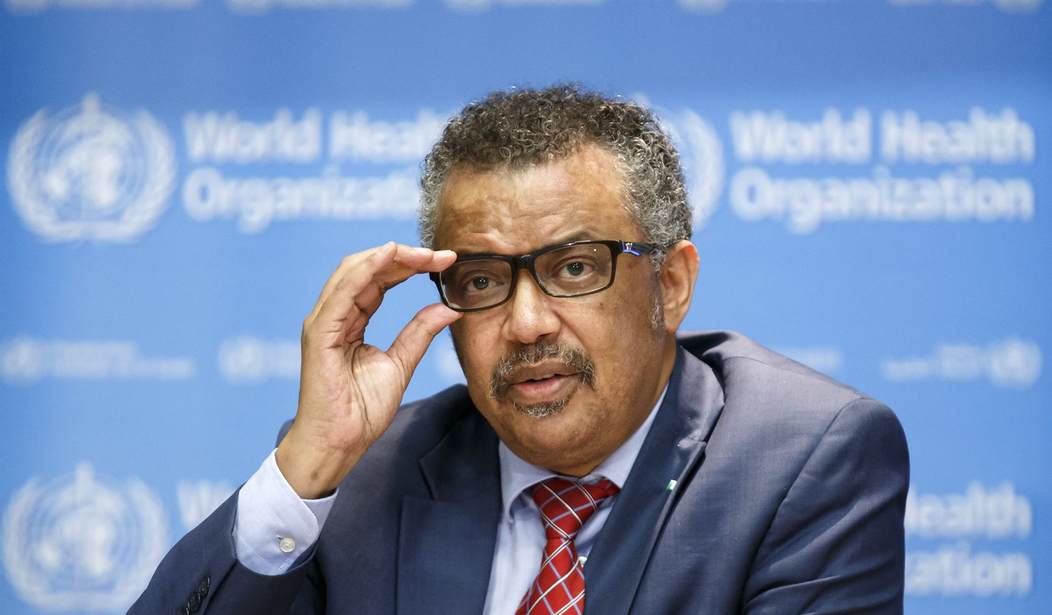The World Health Organization (WHO) has seen better days. Over the past couple of decades, the globally taxpayer-funded United Nations sub-agency has swelled into an unresponsive bureaucracy more eager to praise dictators, fund lavish conferences and travel first class to impose paternalism than help the poor and unhealthy. To listen to WHO leadership, this malaise can go away with an ambitious restructuring program that makes regional offices more responsive to central headquarters. While some reforms may be promising, “restructuring” is unlikely to make the international governmental organization (IGO) into a lean, effective bureaucracy. On behalf of taxpayers around the globe that spend more than $2 billion per year to prop up the WHO’s sclerotic agency, policymakers must champion true reform.
Dr. Tedros Adhanom Ghebreyesus, director-general of the WHO since 2017, faces the not-so-simple task of reforming a global bureaucracy known for mission creep and embarrassing incompetence. One well-intentioned proposal involves sending Geneva’s (WHO’s headquarters) bureaucrats to the WHO’s frontlines, exposing paper pushers to the disease-ridden countries where the organization’s work matters the most. Dr. Tedros’ chef de cabinet Dr. Bernhard F. Schwartländer explained, “By the fourth quarter, we will start moving people around...Some people may not like it, but there is nothing in the W.H.O. constitution that says there’s a right to stay in Geneva. People who don’t want to move may have to leave.”
Perhaps this will lead to greater communication and coordination, but past experiences offer little hope. During the Ebola outbreak in West Africa, outside teams did try to come in, but were stymied when their Guinean counterparts refused to expedite the harrowing visa process and funds were blocked by local officials. And when high-profile officials did manage to come in, the results were not encouraging.
When traveling to Guinea, former WHO director-general Dr. Margaret Chan chose to stay at the luxurious presidential suite of the Palm Camayenne hotel at a staggering cost to the agency of $1,008 per night. This is no isolated incident. In 2017, the Associated Press reported that, “Dr. Bruce Aylward, who directed WHO’s outbreak response, racked up nearly $400,000 in travel expenses during the Ebola crisis, sometimes flying by helicopter to visit clinics instead of traveling by jeep over muddy roads,...” In 2016, the IGO spent $200 million per year in travel expenses, more than what it spends on malaria, tuberculosis, AIDS, and hepatitis combined. Encouraging Geneva bureaucrats to “rotate” around more would just result in more profligate spending.
Recommended
Even if Dr. Tedros manages to hoist strict fiscal discipline on his peers, there’s little hope that centralizing things will improve matters. The WHO has a deep-seated problem of priorities, choosing to focus on “non-communicable diseases” of choice over actual pressing diseases. In October 2018, the UN sub-agency launched the “Safer” alcohol initiative, encouraging governments to combat excessive drinking via stringent regulations, steep excise taxes, and advertising bans. Bizarrely, the WHO admits in their “Global status report on alcohol and health 2018” (released in November 2018) that light drinking can have a beneficial effect on diabetes mellitus, ischaemic heart disease, ischaemic stroke, even as the report authors dismiss the idea of “responsible drinking” as industry propaganda.
More fundamentally, the WHO fails to explain why prohibition and strict control can work in developing countries with weak law enforcement, when it abjectly failed in America during the 1920s and 1930s. These strange leaps of logic extend to war-ravaged Syria where the WHO Representative urged plain packaging and stronger tobacco control initiatives in 2016 at the height of their civil war.
Yet, the WHO continues its misguided focus on non-communicable diseases, devoting nearly $180 million to the issue in its 2018-2019 budget. The WHO spends more money on crusades against “sinful” products than they spend on mental health and substance abuse, violence and injuries, disability, nutrition, and food safety combined. Until the IGO’s misguided priorities shift, no amount of rotating employees or streamlined hiring will make the WHO into an effective force for good. Dr. Tedros can choose to double-down in cosmetic reforms that will just pile on more bureaucracy or make a break with the agency’s troubled past and focus on real issues. Hundreds of millions of lives, and billions of global taxpayer dollars are on the line.

























Join the conversation as a VIP Member